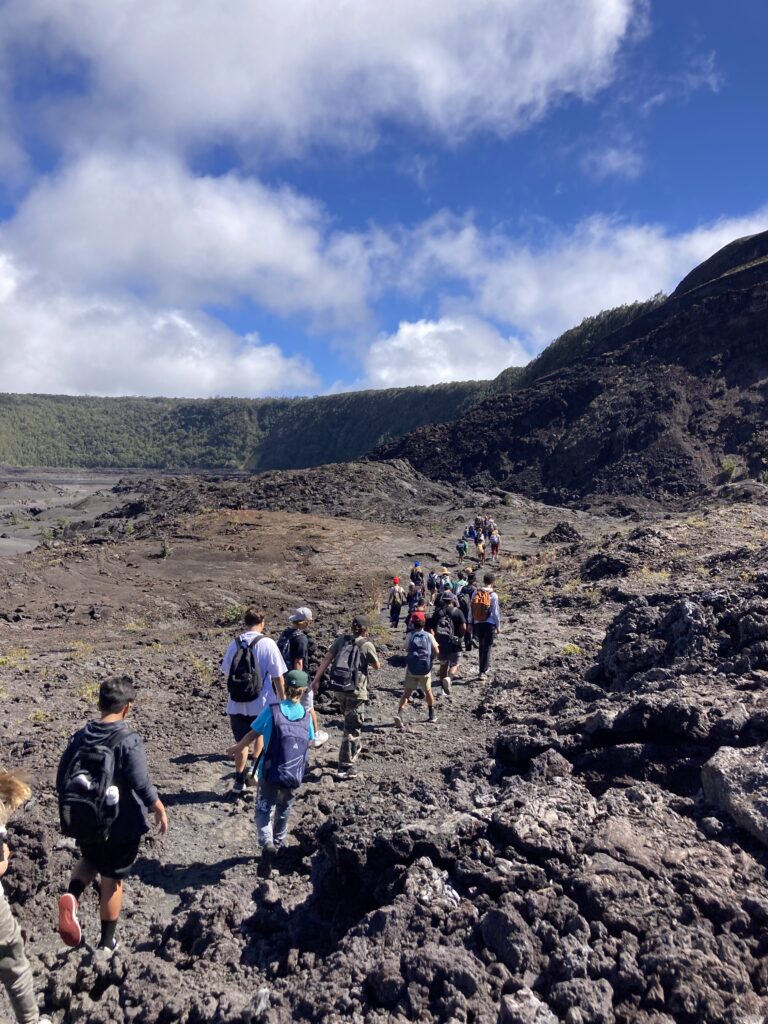Hands-on learning doesn’t require fancy gear—it just takes curiosity, creativity, and a sense of adventure. At Hawaii Adventure Academy, every activity is designed to get students thinking, moving, and engaging with the world around them in meaningful ways. The experiential education model addresses cognitive, physical, emotional, and social development all at once — something very few educational models can do. We combine this form of education with fun, outdoor experiences, ensuring that students learn and have fun at the same time.
What are the benefits of outdoor experiential education?
Being in nature supports attention, memory, and executive functioning.
Attention Restoration Theory (Kaplan & Kaplan): Natural environments provide “soft fascination,” allowing the brain’s directed attention systems (which are easily fatigued in traditional classrooms) to rest and recover. This leads to better focus, reduced mental fatigue, and improved problem-solving.
Increased retention: Experiential learning — doing rather than just hearing — strengthens memory and understanding. Multisensory learning improves neural connections and helps students retain information more deeply and for longer.

Time outside is strongly correlated with emotional well-being.
Lower stress & anxiety: Cortisol levels (the body’s stress hormone) drop after time in natural settings. Nature reduces rumination, supports emotional regulation, and boosts overall mood.
Confidence & resilience: Experiential challenges — like hiking or navigating unfamiliar environments — build self-efficacy, especially when students are encouraged to reflect and recognize their own growth.
Growth mindset: Students learn that struggle is a part of learning. Outdoor experiences naturally present obstacles that foster persistence and adaptability.
Outdoor education fosters collaboration and communication.
Cooperative learning: Many outdoor activities require teamwork, encouraging communication, empathy, and collaborative problem-solving.
Role flexibility: Students often take on different roles in an outdoor group than they might in a classroom, creating opportunities for leadership or support they may not usually access.

Outdoor education deepens students’ relationship with the natural world.
Environmental identity development: Regular, meaningful experiences in nature help students form lasting bonds with the environment, which can influence lifelong conservation behaviors.
Place-based learning: Connecting lessons to the local ecology and culture fosters a sense of belonging, cultural appreciation, and civic responsibility.